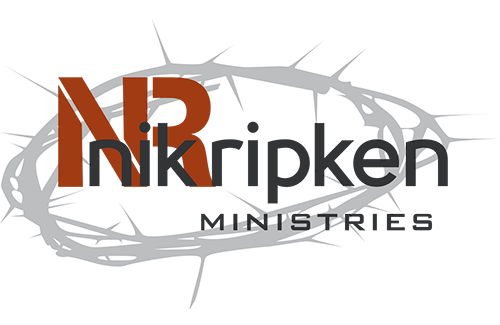Constantine
During the years of the USSR there was a charismatic movement in a particular country within the State Church called the “Army of God.” It was quite a renewal movement, returning a massive number of people back to God and the Bible, away from hollow religious ritual. Sadly, as is true in many persecution environments, the established church and the government joined forces to attempt to harass those who wanted to spiritually color outside of the State religion lines. Many of those in the Army of God were persecuted, with leaders often imprisoned.
But the persecutors made a big mistake.
They put Constantine in prison for his faith. They would have been better served to have left him free and away from the creative pressures that persecution often provides as a traveling companion for believers in prison. The persecutors would have been better off to have left Constantine in his job without the time to reflect upon the kingdom of God, bringing his gifts to bear upon the kingdom.
I met Constantine in a small, one-room, upstairs apartment. He was in his late 80s and his wife has already made her short trip to eternity with Jesus. One could still see the remnants of the powerful man Constantine had been during his younger years. One could hear in the timbre of his voice the power of the songs he was able to produce as the Holy Spirit sang through him during his younger years. I took in all of the possessions that were his in this tiny apartment, possessions that probably were not worth $500 in any market.
Yet I met a man whose creativity through song and faithfulness was priceless. The persecutors would have done well to have left him alone.
Fearing his growing influence in the Army of God they arrested him and incarcerated this leader for many years in prison. In the crucible of persecution Constantine began, as did Paul and Silas in the Acts of the New Testament, to sing. Beaten-he would sing. Denied food-he would sing. Placed in solitary confinement-he would sing. Whatever pressures the persecutors brought upon this man of God there was always the same result.
He would sing!
Before, for generations the songs sang in formal worship, especially worship established and approved by the State, were songs borrowed, transliterated from the outside, Western world. They were songs which were suited for orchestras, maestros, and professional singers who were more concerned with the quality of the product sung than its spiritual content. These State Church songs had become the norm of the church for many generations. Sung with such frequency, these songs became a distant reminder of a faith which had long passed away more than a faith which powerfully burned with the Spirit of God today. These were the songs approved by the State, and used by the State, as a weapon to control and emasculate the singing soul of the Body of Christ.
They should have left Constantine alone, untouched, free, and sitting quietly in his pew. But they made a big mistake when they arrested this man of God, this leader in the Army of God, and placed him in prison.
As a result, Constantine began to sing.
Through the years he was incarcerated he created and committed to memory over 600 hymns and choruses of his HeartSongs to Jesus. These songs began to escape through the bars, windows, and cracks in the concrete blocks of the prison. The songs escaped inside of the hearts of those who were released from prison. Guards fearfully caught themselves singing the songs they heard created inside of the cell and inside of the heart of Constantine. Various governmental persecutors and church officials sought to suppress the growing influence of the songs multiplying themselves from within the heart and soul of one man, but spreading nationally. They tried to silence him using any covert and overt persecution they could imagine.
Still Constantine sang.
By the time the global power of the former USSR was reduced to embers, Constantine had created over 600 songs and choruses to Jesus. By his release, the songs had spread throughout the churches of his country. Birthed by the adversity of pressure and in the crucible of persecution, these songs reflected the soul of the true church in his Eastern European country.
Today they still sing the songs of the Holy Spirit which came through the creative mind and voice of Constantine.
I sat with this man of God, a shell of his former self, in an old apartment as aged as Constantine himself. His voice trembling, his hand shaking-one could still imagine the physical and spiritual presence this man of God had been for decades. It was a glorious five or six hours to listen to this man of God revel in the retelling of his persecution and how he became such a musical tool in the hands of the Holy Spirit. He stated confidently he would have never been used of God to create so much of God’s Word through music unless he had been honored with suffering for Christ for those many years. It was as if I was sitting at the feet of King David writing the Psalms for his Lord and God, songs still sung in churches internationally today. A little afraid but inspired, I asked Constantine if he would sing one of those songs, perhaps his favorite, which he had composed through the Holy Spirit during those long years in prison. He looked at me, smiled at the request, and then gave to me a gift for the ages.
Constantine sang.
